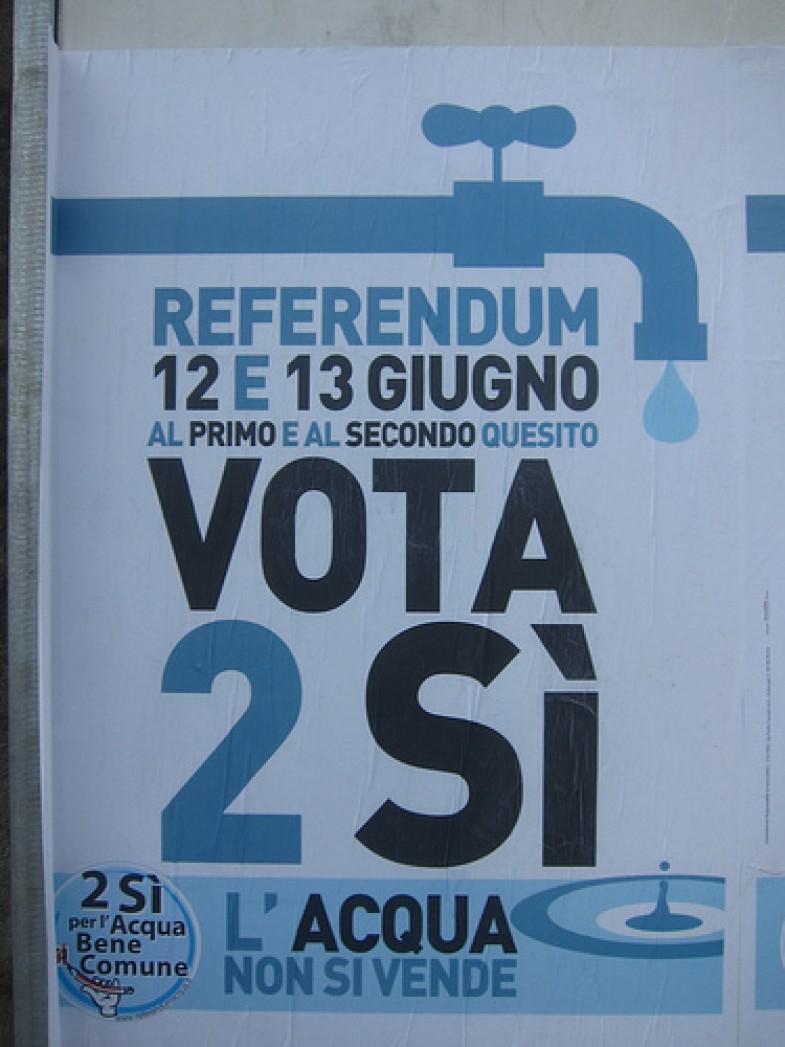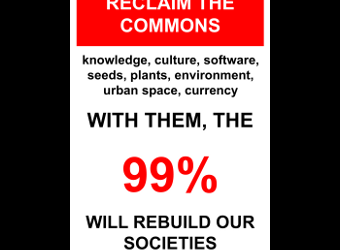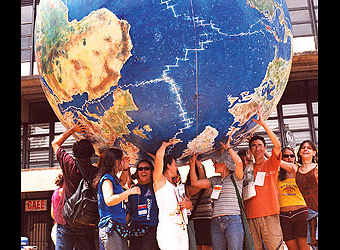“Water—whether we treat it as a public good or as a commodity that can be bought and sold—will in large part determine whether our future is peaceful or perilous.” — Maude Barlow, former water advisor to the UN General Secretary General
In Italy last June, voters overwhelmingly rejected a law passed by Prime Minister Silvio Berlusconi’s government, which would have encouraged private companies to buy up public water utilities and guaranteed them a profit on their investment, opening the door to rate hikes.
With the referendum victory behind them, organizers have now fixed their sights on passing a general water law to guide public management of the common good.
“Beating back privatization is a critical first step towards responsible stewardship of water,” said Daniela Del Bene, an organizer with the NGO Cevi, a member of the Italian Forum of Water Movements. “Not to diminish the importance of the victory but in some ways, now comes the harder part—strengthening a public management system that satisfies both people and nature’s water needs in a sustainable and equitable way.”
The vote was closely watched around the world. “The success of the referendum in Italy is a true display of the power and potential of grassroots activism,” said Wenonah Hauter, executive director of Food and Water Watch. “The Italian Forum of Water Movements and Italian citizens managed to mobilize an entire nation and raise awareness around the human right to water and defending water as a common good.”
Water privatization, of course, is a contentious issue the world over. In many places, corporations are angling to control scarce water resources; where they have succeeded, rates often increase dramatically. The World Bank and other international donors often obligate countries to privatize their water systems—or, at a minimum, enter into public-private partnerships—as a prerequisite for investments.
But, as in Italy, an international grassroots movement is pushing back, working to make sure that water, that basic building block of life, is treated not as a commodity to be bought and sold but a common heritage to be shared by all. Last summer, in a landmark decision, the United Nations “affirmed the human right to access clean drinking water and sanitation”:http://www.yesmagazine.org/planet/at-last-a-human-right-to-water.
“Indeed,” said Del Bene, “our victory is not only for Italy, but in favor of a new discourse on water management and on other commons all over the world.” Renato Di Nicola, an Italian water activist with the Abruzzo Social Forum, praised those who fought and won some of the first battles for water justice: “We don’t forget that our teachers were the indigenous people of Cochabamba with their Water War and the Uruguayan comrades that won a referendum as we have.”
Italian tactics were colorful and varied—from sympathetic musicians singing at metro stops to flash mobs running naked through the streets. Most of all, there were long days of neighbor-to-neighbor organizing. “This has been a victory of, by and for the people, under no party banner,” said Del Bene.
The Global Water Commons Movement
No doubt the Italian case will be much discussed this coming March in Marseilles, where two visions of the future of the world’s water will compete. The World Water Council, with a Board of Directors weighted with private water industry representatives, will organize the Sixth World Water Forum.
The self-described water justice movement, of which the Italian Forum of Water Movements considers itself part, is organizing an alternative forum at the same time to feature ways water can be “managed for the common good”:http://www.ourwatercommons.org/sites/default/files/Local-Control-and-Management-of-Our-Water-Commons.pdf—such as in Paris, one of a growing number of cities ending their contracts with private water operators to return water ownership to the public.
Who owns and controls water is crucially important—and becoming more so. But for Daniela del Bene and other water justice activists, the debate is bigger than water: it’s about how we manage the resources which we all own, and on which we all depend. We have entered “a new path discussion on the commons, on community-based ways of managing them, and on a new form of participation in our democracy,” she explained.
Adapted from an article in YES! Magazine, a national, nonprofit media organization that fuses powerful ideas with practical actions. Daniel Moss is coordinator of Our Water Commons . He organizes and writes to ensure that our shared abundance is wisely managed. He served on the media team for the Peoples’ Water Forum held in Istanbul.










